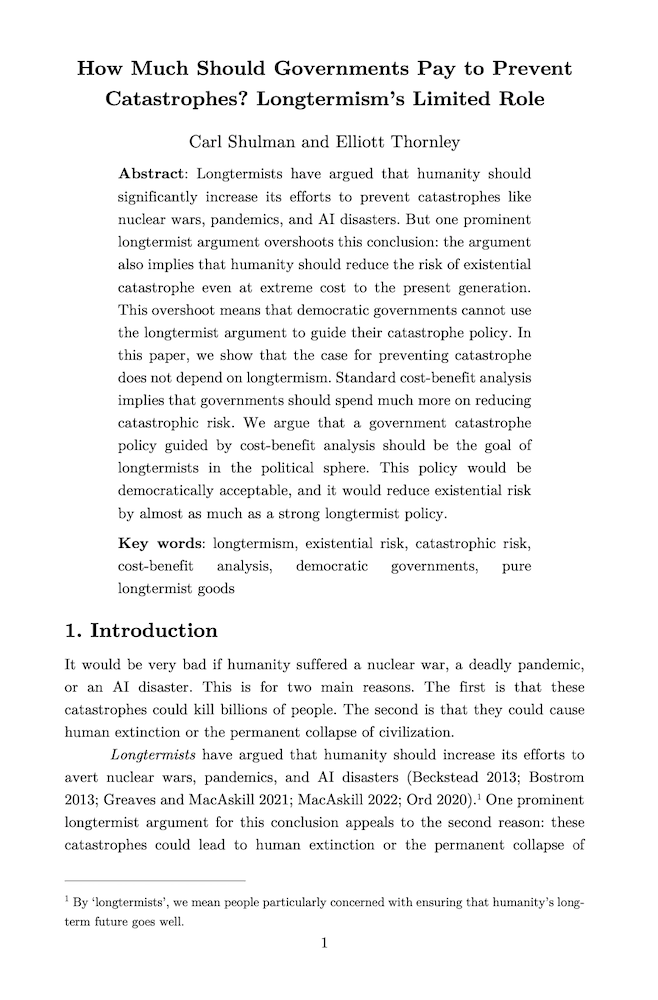How much should governments pay to prevent catastrophes? Longtermism's limited role
Carl Shulman (Advisor, Open Philanthropy) and Elliott Thornley (Global Priorities Institute, University of Oxford)
GPI Working Paper No. 8-2024, forthcoming in Essays on Longtermism
Longtermists have argued that humanity should significantly increase its efforts to prevent catastrophes like nuclear wars, pandemics, and AI disasters. But one prominent longtermist argument overshoots this conclusion: the argument also implies that humanity should reduce the risk of existential catastrophe even at extreme cost to the present generation. This overshoot means that democratic governments cannot use the longtermist argument to guide their catastrophe policy. In this paper, we show that the case for preventing catastrophe does not depend on longtermism. Standard cost-benefit analysis implies that governments should spend much more on reducing catastrophic risk. We argue that a government catastrophe policy guided by cost-benefit analysis should be the goal of longtermists in the political sphere. This policy would be democratically acceptable, and it would reduce existential risk by almost as much as a strong longtermist policy.
Other working papers
The evidentialist’s wager – William MacAskill, Aron Vallinder (Global Priorities Institute, Oxford University) Caspar Österheld (Duke University), Carl Shulman (Future of Humanity Institute, Oxford University), Johannes Treutlein (TU Berlin)
Suppose that an altruistic and morally motivated agent who is uncertain between evidential decision theory (EDT) and causal decision theory (CDT) finds herself in a situation in which the two theories give conflicting verdicts. We argue that even if she has significantly higher credence in CDT, she should nevertheless act …
Existential risk and growth – Leopold Aschenbrenner (Columbia University)
Human activity can create or mitigate risks of catastrophes, such as nuclear war, climate change, pandemics, or artificial intelligence run amok. These could even imperil the survival of human civilization. What is the relationship between economic growth and such existential risks? In a model of directed technical change, with moderate parameters, existential risk follows a Kuznets-style inverted U-shape. …
In defence of fanaticism – Hayden Wilkinson (Australian National University)
Consider a decision between: 1) a certainty of a moderately good outcome, such as one additional life saved; 2) a lottery which probably gives a worse outcome, but has a tiny probability of a far better outcome (perhaps trillions of blissful lives created). Which is morally better? Expected value theory (with a plausible axiology) judges (2) as better, no matter how tiny its probability of success. But this seems fanatical. So we may be tempted to abandon expected value theory…

